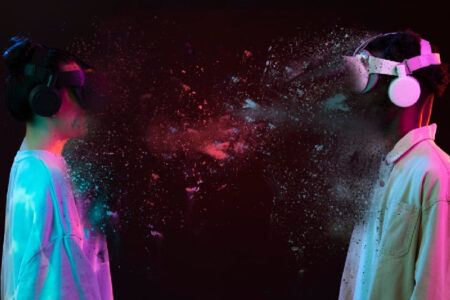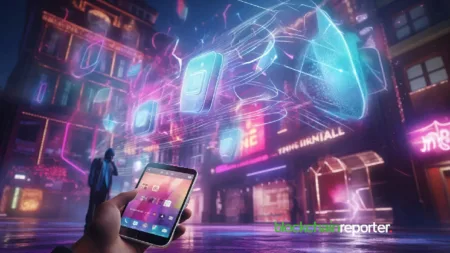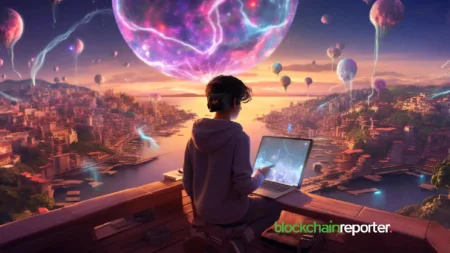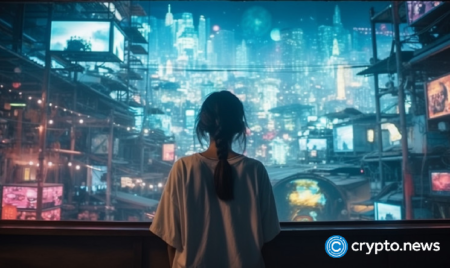- As with any trend, the metaverse becomes differentiated as it splits into different kinds of metaverse experience types with different utility and use cases.
- Augmented, Mixed, and Virtual Reality metaverses are already at the forefront of changing diverse industries and interacting experiences.
- Growing improvements to metaverse technologies are helping sectors begin to explore new realms of possibilities for development.
The metaverse, a multipurpose social environment, evolves dynamically, teaching society how to interact, work, and relax in the virtual world. It offers various styles, from immersive virtual reality to augmenting physical reality.
Virtual Reality (VR) Metaverse: A Gateway to Full Digital Worlds
Out of all the types of metaverse technology, the first is the Virtual Reality (VR) Metaverse. This first kind provides its users with a unique experience—the ability to get inside a digital world. Using VR headsets and haptic gadgets, a person can move, operate, and act within the context of a simulated setting as if they are real.
Augmented Reality (AR) Metaverse: Blending Digital Realms
Augmented Reality Metaverse is an incredible amalgamation of the virtual and real-life worlds. AR improves the overlay of the actual situation by adding digital information and objects to it. It has been used in areas such as retail, where people get an idea of how they would physically look when wearing specific attire or how a piece of furniture would appear when placed in a given room. The AR Metaverse is also promising for navigation, education, and the industrial environment where real and virtual worlds are combined.
Mixed Reality (MR) Metaverse: The Best of Both Worlds
A phenomenal fusion of VR and AR lies in the Mixed Reality (MR) Metaverse, where ideas synergistically come in single containers. Most of these metaverse applications are superior since they enable virtual objects to interact with the actual physical vane in real time. MR has expanded its practices to such areas as architecture and design, where the concerned specialists can virtually place the model and have it work in real-life space, which is a complete transformation of work.
Social Metaverse: Redefining Human Interaction in the Digital Age
The social metaverse is perhaps the most significant leap in people’s experiences with each other online. It provides avatar users with not only a new way of interacting but also beyond the ability of the current usual social media applications. In such immersive spaces, people can attend virtual events, work on collaborative projects, and experience other forms of availability that almost feel real.
Gaming Metaverse: A Playground for Digital Adventures
The metaverse in gaming cases not only takes the concept of gaming to other astoundingly higher dimensions but also gives the gamers an incredible simulation of the game and the reality. Rather than assemble one type of game world that eschews social interaction or another kind that promotes it, it is necessary to critically examine why game worlds and the opportunities of such an environment exist to enable people to game and even work, communicate, and trade. Introducing blockchain and NFTs into these gaming metaverses has led to the opening of this new economy.
Read the full article here









